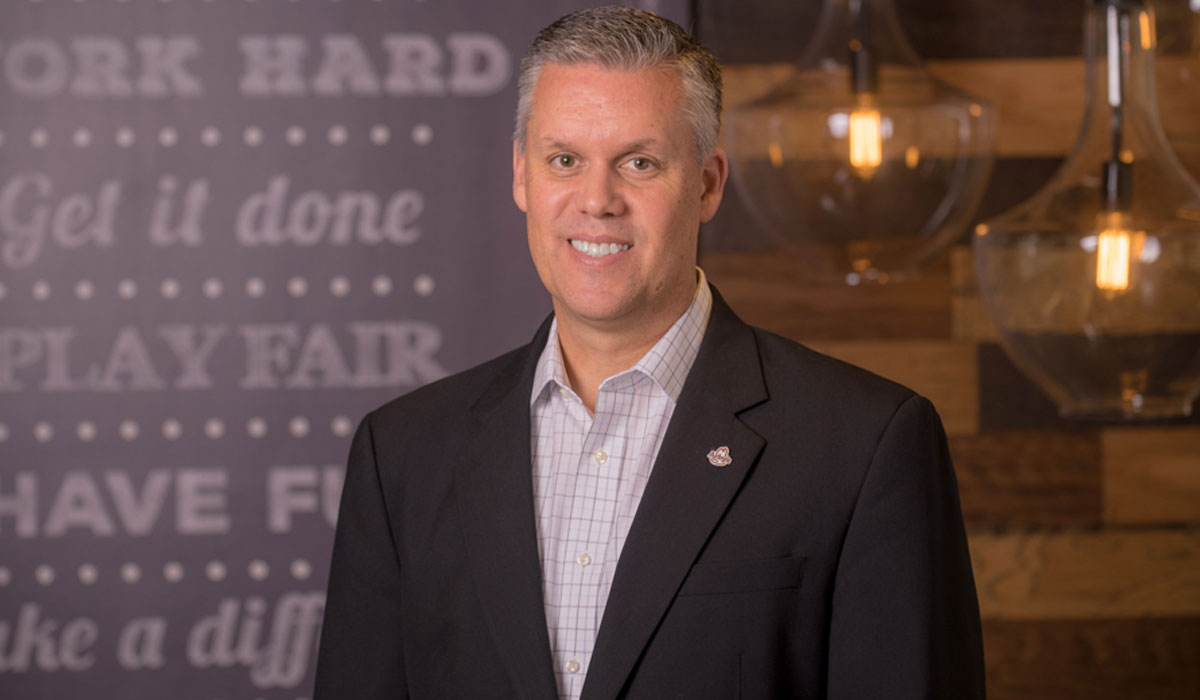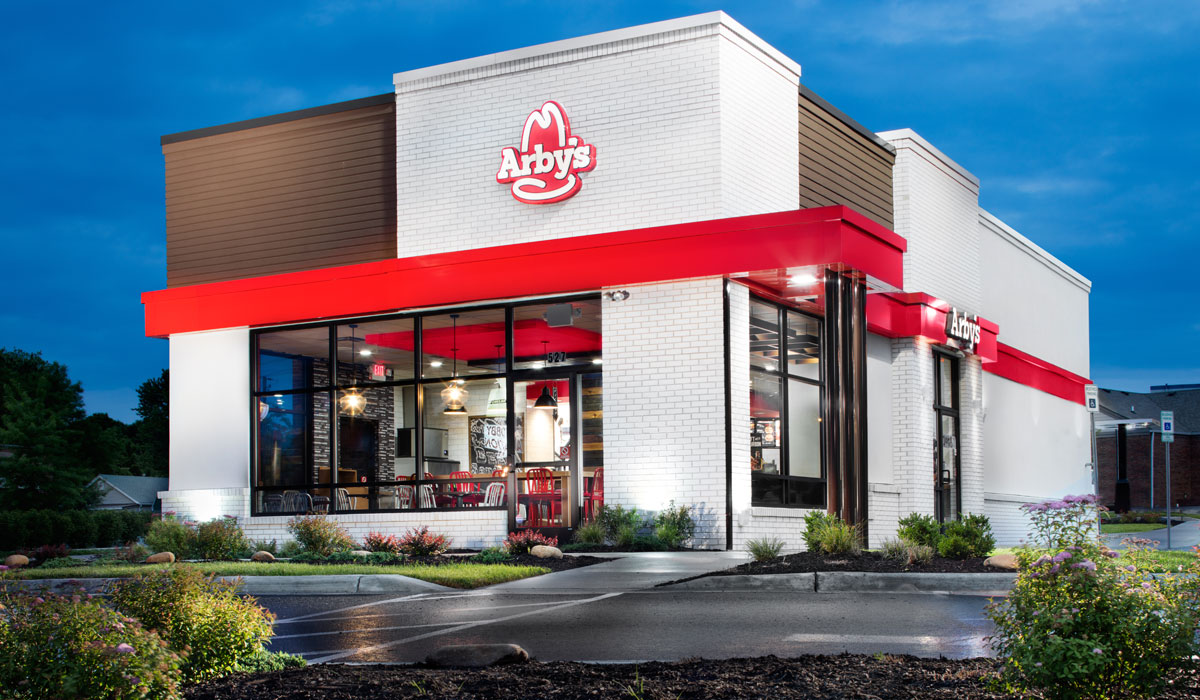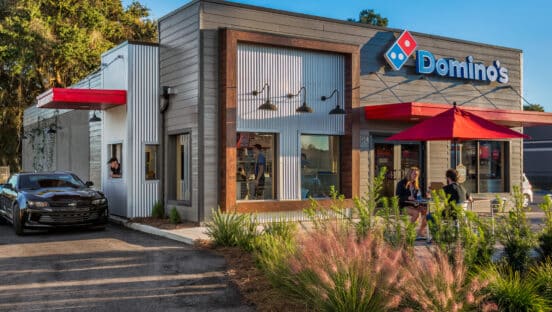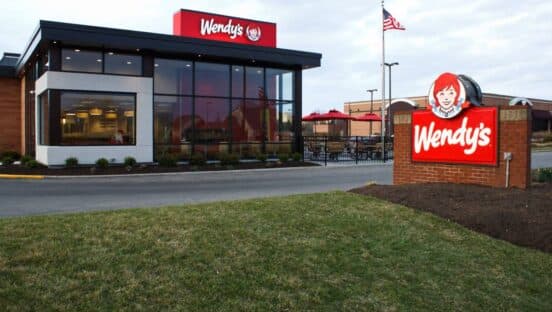Being a pioneer is never easy. The road to success is often marked with tribulation and doubt. But, for those who stay dedicated to a vision, even in the face of seemingly insurmountable adversity, triumph is possible. Such was the case for ARCOP, Inc., Arby’s independent, non-profit supply chain cooperative celebrating its 40th anniversary this year—February 21 to be exact. Before the founding of ARCOP, there was no formal, independent supply chain in the quick-service restaurant sector. ARCOP’s first president, Tom McKinnon, was plucked from Michigan State University by Leroy Raffel, one of Arby’s founders, as a Ph.D. student studying Hotel and Restaurant Management. Raffel initially appointed McKinnon Director of Purchasing for Arby’s, Inc. before he was elected as ARCOP’s President by the ARCOP Board of Trustees after the co-op gained its footing.
“He was a super honest, straight-shooting guy,” Raffel says. “He was the first guy, and he was like a one-man gang. He was a professional and he really set the whole thing up to start with; and, he really did a great job.”
Understanding how suppliers operate
Establishing a supply chain virtually from scratch was never going to be a simple procedure. But, McKinnon certainly was the steward the budding quick-service restaurant brand needed to conquer such a task. A keen student of the hospitality industry, McKinnon cited early champions of restaurant logistics and technology, such as Bonanza and McDonald’s, as concepts from which he drew initial inspiration. “Logistically, McDonald’s had traditionally led the way for the fast food industry in separating product procurement from distribution.”
He insisted one of the main keys to success was understanding how suppliers think, as well as putting himself in their shoes from a profit and operations standpoint. He recalled studying advancements in meat-tenderizing technology, the development of Arby’s structured roast specification, innovative distribution methods targeted at improving quality control, and other critical supply production processes he knew he’d need to master in order to strategically negotiate with Arby’s suppliers. And, if you ask him, he never saw himself as a procurement or logistics specialist. “I‘m not a buyer. I’m a strategist,” McKinnon says.
Franchisee early purchasing process
Mastering supplier technologies and processes was only one of the building blocks for a successful supply chain that McKinnon felt he needed to conquer. Analyzing the existing purchasing culture within the Arby’s brand and finding a “one-size-fits-all” national solution to their unique regional needs posed a real challenge as well. McKinnon described a multifarious system where most franchisees had local, personal relationships with suppliers, while others pooled their purchasing efforts by region. “Some franchisees would even drive around in their own trucks every week delivering supplies to their restaurants,” McKinnon says. As he recalled, many franchisees were purchasing several months’ worth of product directly from suppliers and storing it in their own freezers to later distribute to restaurants, as needed.
“I used to have a plaque in my office that read ‘Book a Load, Cut a Deal’ because it was a phrase I used so often.”
 First order of business: distribution
First order of business: distribution
Because Arby’s footprint had grown coast to coast, coupled with many franchisees utilizing their own idiosyncratic purchasing methods, a cohesive, national distribution network had proven difficult to establish. But McKinnon had a vision, structure, and plan for charting and predicting progress through careful planning and analytics. He hired an assistant, Betty Young, in Youngstown, Ohio, prior to the co-op’s move to Atlanta in 1979 where he went on to add a few additional support personnel. But Young, he said, was really the support he needed at the time to get things off the ground. “I needed someone who really understood what we were doing and who could essentially operate the office while I was traveling and building business relationships,” McKinnon says. “She was very smart and ended up doing quite well, even after I left the co-op.”
There were only a handful of independent national distributors at the time that were capable of supporting the volume of the Arby’s system. The rest of the purchasing categories largely needed to be constructed from the ground up, starting with potatoes and distribution. McKinnon divided the Arby’s system into about eight regions. Atlanta was the first region, centering supply chain building efforts on Franchisee Russ Umphenour’s RTM LLC, which was based in the city.
Establishing system trust in the co-op
McKinnon recalled that several franchisees in other regions noticed the overwhelming success of the co-op’s first foray into developing a national distribution network and began petitioning for the system to spread faster to other regions of the country. As Lunan Corporation Franchisee and ARCOP Board of Trustees Member Emeritus Harry Sax remembers, “Most stores out there immediately noticed that the prices coming in the back door were cheaper.”
Still, there were pockets of franchisees who needed to be further convinced that yielding the control of purchasing to a new system that didn’t have a tangible predecessor was actually going to benefit them in the long run. But, as Sax says, “[creating the co-op]was a desire to do a better and more efficient job; and so we went into the business of trying to reduce our costs by marshalling our mass purchasing power to drive costs down. It was a better way to pass products onto the stores at lower cost; we knew there were more efficient ways of doing it.”
In sum: friends and family make it worth it
Going into the unknown requires grit, humility, perseverance, and strategic mindfulness. As Albert Einstein so eloquently put it, “The person who follows the crowd will usually go no further than the crowd. The person who walks alone is likely to find himself in places no one has ever seen before.” Arby’s determined and fearless franchisees and corporate leaders were unfailingly committed to a Brand they loved. Many had immersed their lives and hopes into seeing the Brand go the distance and knew they had to come together and think outside the box in order to stand out from the crowd. A culture of family and friends was established from the start. As long-time supplier Ed Mullins recalls about the early days of the co-op, “[ARCOP]made it clear they always wanted to be a step above the competition; and that’s what they expected to be developed. Price wasn’t [as much] the issue, but supply and honesty were.”
Arby’s Franchisee and one of ARCOP’s first Trustees Mike Schulson of Lunan Corporation notes, “ARCOP as a co-op has saved the individual franchisees millions of dollars. Once it was formally run with professional management and everybody got aboard so they had the buying power of everybody [and] they could negotiate properly…obviously it’s become a very big success. I think it’s a major factor [as to] why Arby’s became a success. We bought in unity, bought in volume, and bought at the very best prices.”
The transformation
Forty years later, ARCOP enjoys 100 percent Arby’s system participation and has become one of the leading supply chain organizations in the industry. As the industry evolved, so did ARCOP. ARCOP’s purpose statement today is “Delivering Excellence in Every Case.”
The co-op’s four key stakeholders are ARCOP Members, the Arby’s Brand, ARCOP’s Employees, and Arby’s Suppliers. The co-op manages over $1.3 billion in annual spend, maintains contracts with nearly 350 Arby’s suppliers and over 900 contracted SKUs, and moves over 27 million cases throughout the Arby’s system on an annual basis.
Current president David Cox, who joined the organization in 2005, remarked, “ARCOP was a focused ‘nuts-and-bolts’ purchasing co-op when I first came on board. The challenge was transforming a small singular-focused organization into a full-fledged supply chain organization, to manage the supply from raw material to the finished goods coming into the restaurant. Over the past 13 years, we have nearly tripled in size. The transformation included taking on the management of limited-time-only promotions, supply visibility through technology, electronic RFPs, market and risk management, distribution and logistics management, and adding Indirect Sourcing into the organization. I’m very proud of what we’ve achieved as a team in that time alone.”
Cox notes how evolving ARCOP’s culture into “being a customer of choice” has brought the co-op into the modern era, and has continued to set examples on how to develop and maintain those important relationships that McKinnon knew was going to be one of the deciding factors in the success of an independent co-op. Cox noted that consistently playing fair, one of Arby’s main tenets, will result in the organization having the strongest suppliers desiring to do business with the Brand long-term. “Having the best suppliers in each category, we know we will be able to deliver product to our restaurants that is consistently wholesome, within specification, and delivered at an efficient price.”
McKinnon said he built a system he meant to last. And it certainly has. McKinnon and his first team at ARCOP laid a strong foundation that has stood the test of time, paving the way for other supply chains to emulate and setting many bars in the industry.
Casey Wright is the Communications Manager for ARCOP, Inc. and is based in Atlanta. Casey is responsible for employee and franchise co-op communications as well as external supplier communications. Specific responsibilities include strategies, e-blasts, copywriting, marketing support of cross-functional and project-based communications, digital newsletters and catalogs, co-op brand management, web content management, and development of strategic print collateral on topics ranging from Point of Sale systems to building and development design elements. She is a graduate of the University of Alabama (B.A. Journalism), South University (A.S. Paralegal Studies), and George Mason University (M.A. Communication—Strategic Communications and Public Relations).













